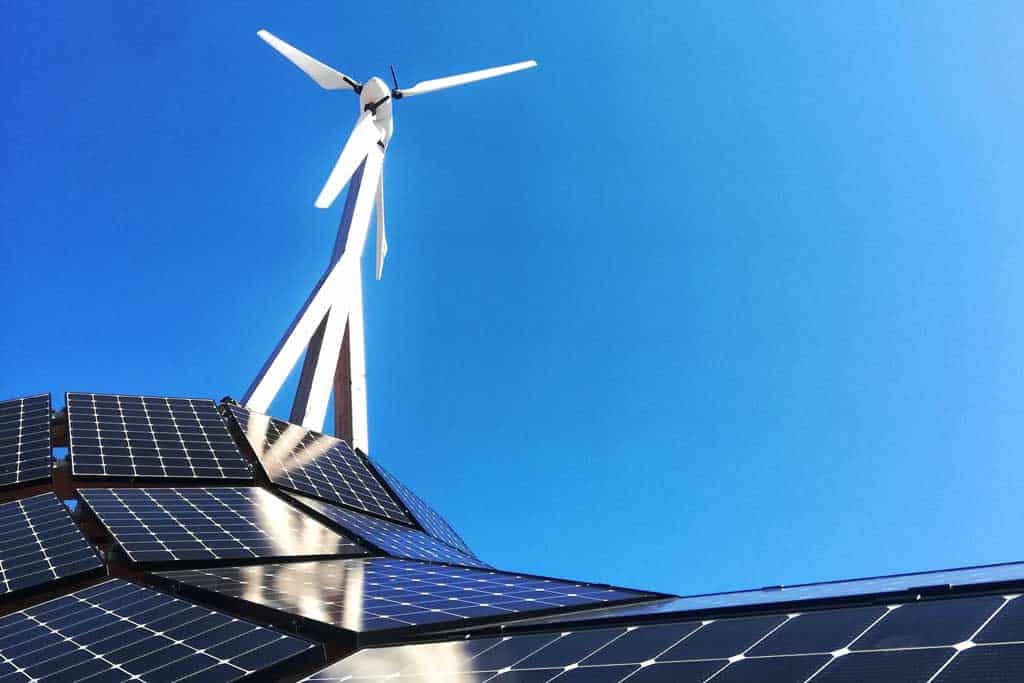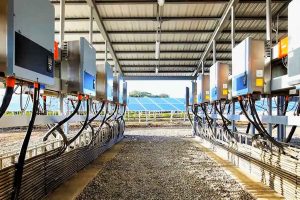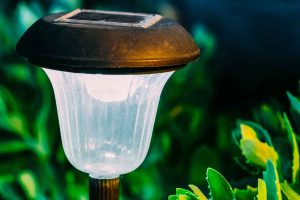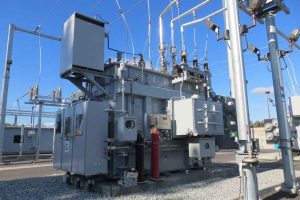Solar power is a critical way to reduce your carbon footprint. You can also save money on your utility bills and make your basic home solar system more appealing to buyers in the future.
A Basic Home Solar System Is A Smart Investment?
A basic home solar system is an intelligent investment that will save you money now and may increase the value of your home in the future.
Solar power has been around for decades, but it’s only recently that people have begun to realize its full potential. A basic solar system is one of the most cost-effective ways to reduce energy bills while helping protect our environment.
When installed correctly, a basic home solar system should last at least 25 years—and most homeowners see substantial savings during this period. The average residential electric bill in America runs about $120 per month.
An average payback period of 12 years (that’s how long it takes for solar panels to pay for themselves) means you’ll save about $4,800 over those 12 years—not bad for something that costs less than $20k.
A basic home solar system is the future, and it’s a wise investment that will save you money now and may increase the value of your home in the future. A basic solar system can reduce energy bills by as much as 50% while helping protect our environment.
When installed correctly, a basic home solar system should last at least 25 years—and most homeowners see substantial savings during this period.
The average residential electric bill in America runs about $120 per month; with an average payback period of 12 years (that’s how long it takes for solar panels to pay for themselves), that means you’ll save about $4,800 over those 12 years—not bad for something that costs less than $20k.
Lower Utility Bills
A basic home solar system will lower your monthly utility bill by generating more power than you need. If you have excess solar energy, you can sell it back to the grid and save money. If there’s no sun or the batteries are low, a simple switch allows you to use energy from the grid without paying for it until your solar panels produce again.
This added savings could be enough to pay for installing a home solar system in less than five years.
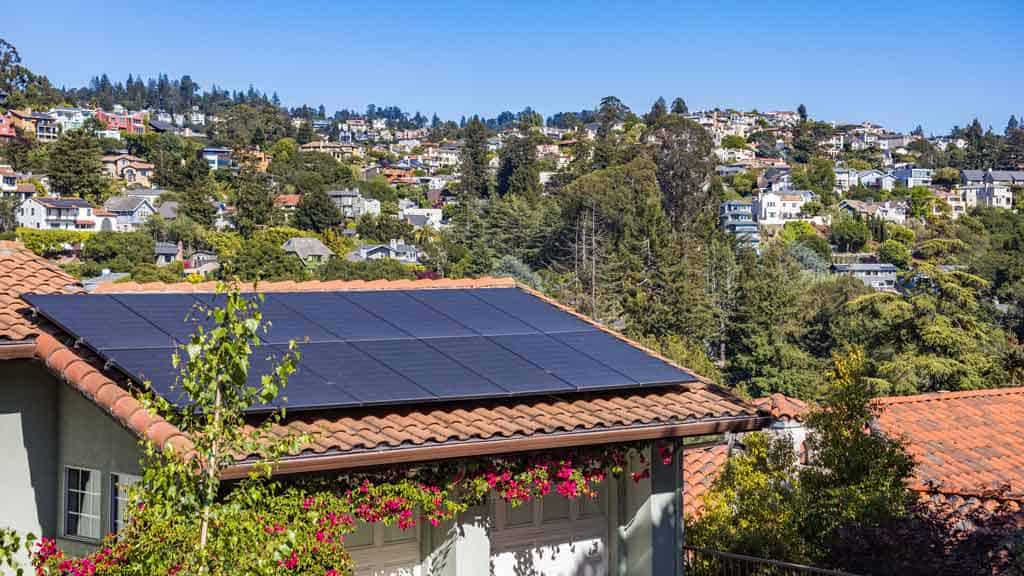
Basic home solar systems are cost-effective and good for the environment. Using less fossil fuel will help reduce greenhouse gas emissions and protect our planet’s future.
The benefits of solar: Solar energy is free, abundant, and clean.
- Solar energy is free. The sun provides almost limitless power to our planet, so why not use it?
- Solar energy is abundant. There’s enough solar radiation hitting the earth every hour to power all of our needs for a year.
- Solar energy is clean. Humans have used fossil fuels like oil, coal, and natural gas since the industrial revolution began in England at the start of the 19th century. Still, they’re dirty and come with severe environmental side effects, from pollution to climate change to health problems caused by toxic emissions in communities.
Discover Why Green Energy Is Important For Your Home
Learn about the benefits of solar energy and how it can save you money on your energy bill. Schedule a free consultation with us, and we’ll help you find the right solar system for your home.
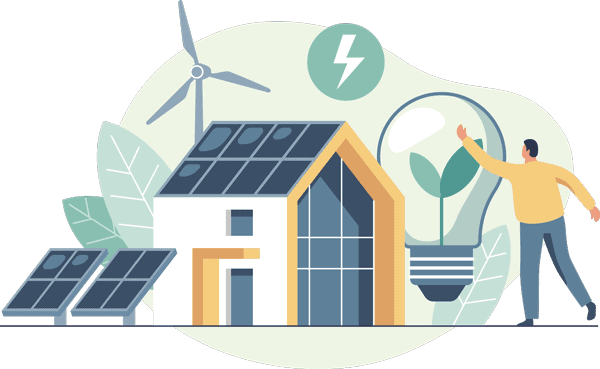
Industries burn these fuels in large amounts, coal miners’ black lung disease being an example.
Solar energy is renewable. Solar energy can be used repeatedly, unlike fossil fuels, which are finite and will one day run out. Solar power helps fight climate change because it doesn’t produce harmful emissions like carbon dioxide (CO2).
Solar power is a renewable resource.
One of the most compelling reasons to invest in a basic solar system is that it provides a clean and renewable power source. Solar energy has been essential since ancient times—look at how the Egyptians built their pyramids! Today, solar power is an affordable and efficient way to produce energy without relying on dirty fossil fuels.
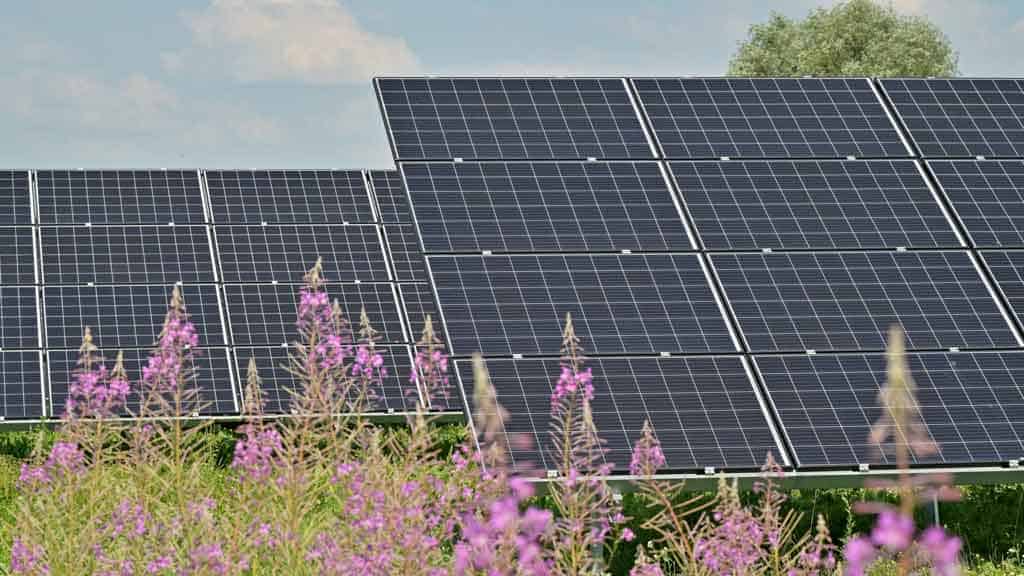
Why is this important? According to the U.S. Environmental Protection Agency (EPA), fossil fuels are responsible for two-thirds of all greenhouse gas emissions in this country, making them one of our most significant environmental problems today.
And when you consider that coal-fired plants account for about half of all electricity generated in this country each year, it’s clear why we need better ways to generate electricity without burning carbon-based fuels like coal or natural gas.
Solar power is also a great way to save money. A basic home solar system can reduce electricity bills by as much as 30% or more, depending on where you live and how much sunlight hits your roof each year. Essentially, this is because most of the cost of solar energy comes from purchasing a solar system in the first place—after that initial investment.
There are no additional costs associated with generating electricity. Many homeowners who go solar start saving money on their monthly utility bills within just one year of installing their solar panels! That makes investing in a basic solar system an attractive option for anyone who wants to save money while helping the environment.
Increase in home value
If you are considering investing in solar panels, there is good news: your investment will pay off.
There are many reasons why a home solar system is a smart investment. In addition to the potentially huge savings on electricity costs, having a home solar system can increase the value of your home and add curb appeal.
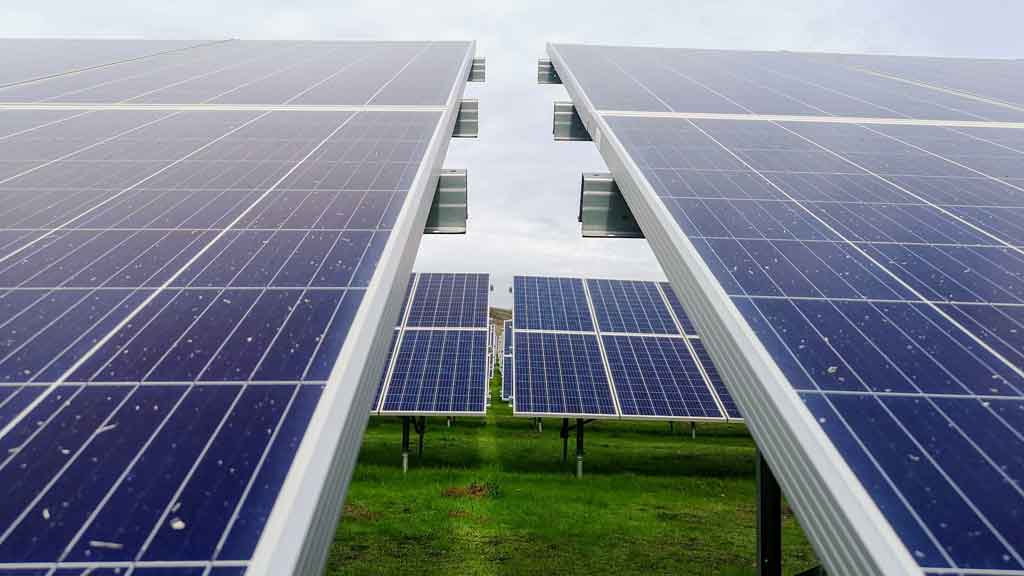
A basic system costs between $5,000 and $15,000, depending on where you live and how big your house is. You will also need to hire an electrician with experience installing solar systems; otherwise, it could be difficult for them to work around other people’s electrical equipment.
Solar technology has improved dramatically in recent years; not only does this mean that the cost of buying these systems has decreased significantly, but now they’re able to generate more power than ever before.
There are many reasons why an essential home solar system is an intelligent investment. In addition to the potentially huge savings on electricity costs, having a home solar system can increase the value of your home and add curb appeal.
A basic system costs between $5,000 and $15,000, depending on where you live and how big your house is. You will also need to hire an electrician with experience installing solar systems; otherwise, it could be difficult for them to work around other people’s electrical equipment.
Solar panels have a long lifespan and require little maintenance.
They can last for decades, and you don’t have to worry about cleaning them. Just replace them when they break. Solar panels are very durable and require little maintenance.
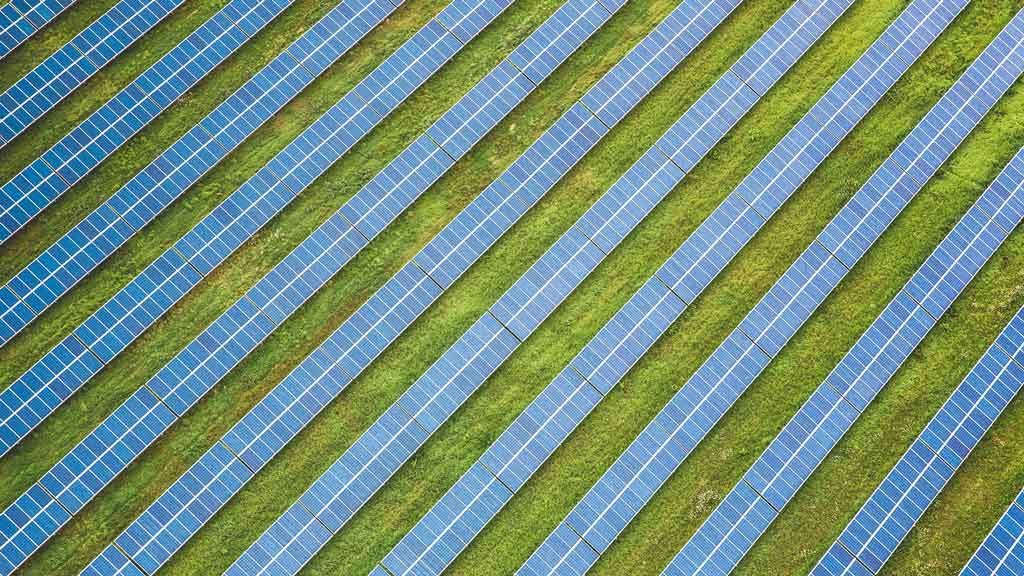
It’s a good idea to keep an eye on your system in case of any issues. Still, unless something goes wrong with your equipment or installation, you’ll be able to enjoy clean energy without worrying about anything else.
Solar panels are very durable, but they do have a limited lifespan. Once your system has reached the end of its life, you’ll need to replace it with a new one. Therefore, getting a warranty for your equipment is essential—so that if something goes wrong, you can ensure the manufacturer covers it.
A solar panel system is an intelligent investment for your home.
A basic home solar system can save you money on your utility bills and increase the value of your home. It can also go a long way toward helping you reduce your carbon footprint.
This article will look at what makes essential home solar systems an attractive addition to an energy-efficient homestead or off-the-grid cabin.
Solar power is the conversion of sunlight into electricity, directly using photovoltaics (PV) or indirectly using concentrated solar power. Solar technologies are broadly characterized as either passive solar or active solar, depending on how they capture and use sunlight.
Active solar techniques include using photovoltaic panels and thermal collectors to harness the energy. Passive solar methods include:
- Orienting a building to maximize exposure to the sun.
- Making use of materials with good thermal mass or light dispersion.
- Designing spaces that naturally circulate air.
The photovoltaic effect is the process by which solar cells convert light into electricity.
The different types of solar PV systems
There are three main types of solar PV systems: grid-tied, off-grid, and hybrid.
- Grid-tied systems are connected to the utility grid, feed electricity into the grid during the day, and draw power from the grid at night.
- Grid-tied systems are usually the most cost-effective option.
- Off-grid systems do not connect to a utility grid but instead, use batteries to store excess energy generated during peak sunlight hours. This type of design is used in places where access to utility power isn’t available such as rural areas or islands that rely on diesel generators as primary power sources when there’s no sun.
- Hybrid systems combine both grid-tied and off-grid components. In turn, this allows the system to send excess electricity back to the grid during peak hours when it’s most valuable and also draws power from the grid at night when there isn’t enough sun.
Solar PV systems often work with renewable energy sources such as wind turbines or geothermal heat pumps. These systems are usually more cost-effective than stand-alone solar PV systems because they don’t require additional equipment like batteries to store excess energy.
The cost of solar is falling every year.
The cost of solar energy is dropping fast. Between 2008 and 2020, the cost of solar panels fell by 85%, meaning it’s now much more affordable for everyday homeowners to go solar. You may be surprised by how quickly these prices have dropped: In the last five years, the price has gone down by 50%. The previous year alone (2017) fell another 30%.
- Solar panels are now cheaper than ever to install. Comparing the price of solar vs. traditional electricity can save you as much as 70% on your monthly electric bill!
- In addition to being more reliable than fossil fuels, solar power has no emissions and no downtime.
- Solar panels have no moving parts, so you don’t have to worry about them breaking down like other energy sources. They’ll last for many years without requiring any maintenance or repair.
- Clean, renewable solar power doesn’t emit greenhouse gasses or other pollutants, so it’s better for the environment than other forms of energy. -Solar panels can also be used to heat water.
As a result, they’re not just suitable for your home’s energy needs; they can also help lower your water heating bills by using the sun’s rays instead of natural gas or propane.
The energy payback period for solar energy is short.
The energy payback period (EPP) measures how long it takes for solar-generated electricity to offset the energy consumed in producing and installing the system. The EPP can then be calculated by comparing the total lifetime output of a PV system with its total lifetime input or cost.
The net present value (NPV) is another way to determine if a solar installation is worth it. It calculates the total future cash flows over time and discounts them using an interest rate, representing how much people value money today versus later.
However, these calculations assume no change in solar technology and energy prices over time. In reality, technology advances, and the cost of solar panels has decreased dramatically since 2010, making them more affordable than ever.
Many homeowners who take advantage of solar energy are eligible for federal tax credits and state rebates, which can help offset the cost of an installation. The federal government currently offers a 30% credit through 2019, which drops to 26% in 2020 before ending entirely in 2022.
You can reduce your carbon footprint.
As you may have guessed by now, solar panels produce clean energy. It means that they don’t make any harmful emissions of pollutants. The only emission from solar panels is water vapor, a much better alternative than carbon dioxide and other toxic gasses
.
Solar systems are also considered renewable by converting sunlight into electricity without generating waste or pollution during the process (and because they use no raw materials). When you decide to go green with your basic home solar system, you do your part to protect our planet for generations to come.
Lastly—and perhaps most importantly—solar panels reduce the need for fossil fuels like coal and oil to generate electricity at home. Not only does this help prevent climate change from worsening by reducing greenhouse gas emissions and our dependence on foreign energy sources.
Solar panels are a great alternative energy source that helps reduce your carbon footprint and protect our planet. Most importantly, you can install a solar system on your home at a reasonable price and with no upfront costs.
If you’re interested in learning more about solar panels or if you’d like to learn how to get started on your solar system for your home, contact us today.
Conclusion
Now that we’ve covered the basics, you should be ready to get started with the basic home solar system. Remember that it’s never too late to install your solar panels and start saving money on utility bills. You can choose designs based on what works best for your home or business.

